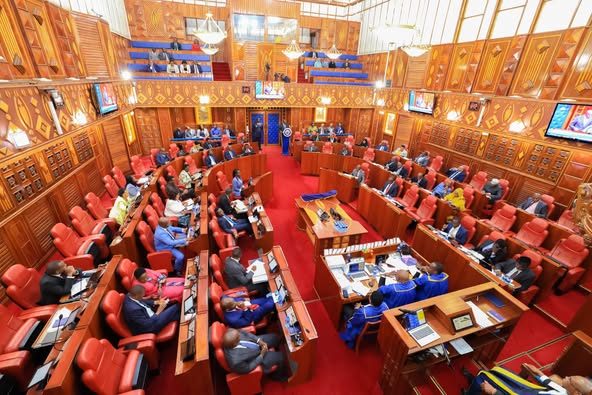The Senate is pushing for real-time access to county government bank accounts in a bid to enhance transparency and curb fiscal indiscipline in Kenya’s devolved units. The move comes after concerns were raised about the large number of commercial bank accounts held by some counties, with Kitui leading at 350 accounts.
According to the latest County Governments’ Budget Implementation Review Report by the Controller of Budget (CoB), several counties operate hundreds of accounts, raising fears of mismanagement, non-disclosure, and weak oversight. The Senate County Public Accounts Committee, chaired by Senator Mohamed Abass, adopted a report recommending radical reforms to address the issue.
“If implemented, this will be a game-changer in fostering unprecedented oversight and safeguarding public resources,” Senator Abass said.
The committee urged the National Treasury to review the Public Finance Management (National Government) Regulations, 2015, to grant the Central Bank, Controller of Budget, and Auditor General real-time access to all county accounts. The senators also want clear sanctions introduced for counties that fail to comply.
In addition, the Senate called for an immediate audit of all county government commercial accounts to be jointly conducted by the National Treasury and the Auditor General. Following the audit, inactive accounts should be closed, and any balances transferred to the County Revenue Fund to streamline financial management.
The CoB report revealed stark contrasts among counties. While Kitui had 350 accounts, Nakuru followed with 311, Bungoma with 301, and Baringo with 280. On the other end, Nandi had only 10 bank accounts, Kisii had 14, and Siaya 15. Interestingly, some counties with larger economies, such as Nairobi (174 accounts) and Mombasa (94 accounts), did not feature among the top 10.
If enforced, the Senate’s recommendations could mark a significant step in strengthening accountability, reducing leakages, and safeguarding billions of shillings allocated to counties each year.

